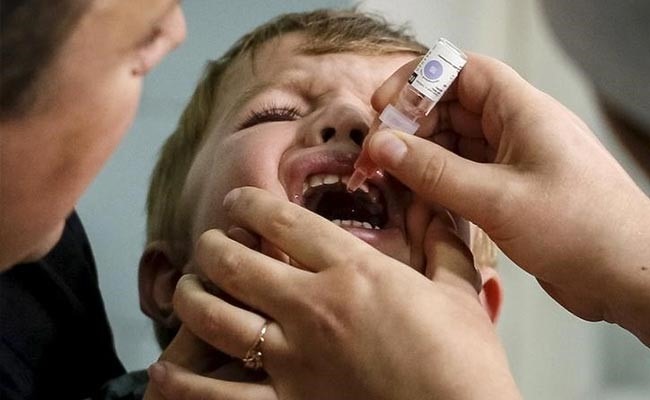| Translate This News In |
|---|
Just when we thought monkeypox would be the new virus worry for 2022, the UK Health Security Agency (UKHSA) proclaimed a national incident of recurring poliovirus detection in sewage in north and east London. Repeated positive polio tests indicate that there is a continuous infection and potential transmission in the neighbourhood. This is surprising given that the United Kingdom has been proclaimed polio-free since 2003. Here’s what you need to know.
Poliomyelitis (polio) is a deadly disease that has traditionally resulted in paralysis and death all throughout the world. Polioviruses, tiny RNA viruses that can damage nervous system cells, cause it.
Because it is not found in animals, it, like smallpox, can be eradicated. And, because to efficient immunisation initiatives, we are moving closer to this goal every year.
There are three kinds of poliovirus, and infection or immunisation against one does not protect against the others. Although type 1 poliovirus has continued to cause outbreaks, vaccination has successfully stopped transmission of types 2 and 3.
Poliovirus is spread through respiratory droplets, but it can also be caught through food or water that has come into contact with the virus’s faeces.
It can survive for several days at normal conditions. The final remaining outbreaks have been linked to inadequate sanitation locations that are difficult to reach with immunizations. Afghanistan and Pakistan are the only two nations where wild polio is endemic, and eradication efforts are aimed at preventing the virus from spreading to other countries.
Vaccines have a critical function.
Vaccines were critical in the eradication of polio. In 2021, there were just about 700 documented instances worldwide.
In the United Kingdom, the injectable polio vaccine is used. It contains inactivated virus (IPV) and is safe and effective in preventing the immunised person against paralysis; however, it is less efficient in generating local immunity in the gut, so vaccinated people can still become sick and shed infectious virus even if they do not display symptoms.
IPV provides great individual protection, but it is insufficient to control an epidemic in inadequate sanitary circumstances. The oral polio vaccine (OPV), which contains a live but attenuated virus, is appropriate for this purpose. Because OPV is administered via drops and does not require skilled personnel or sterile equipment, it can reach a wider range of groups.
This vaccine can elicit strong gut immunity and limit the spread of wild polioviruses. Because it contains a live virus, it can spread to the immunised person’s close contacts and protect them as well. It’s also less expensive than IPV.
The disadvantage of utilising OPV is that the weakened virus can evolve and, in rare occasions, revert to paralysis-causing forms.
Our immune systems clear OPV within days, but this may not be the case in persons with impaired immune systems, who may carry the virus for prolonged periods of time, increasing the likelihood of mutations. This can result in vaccine-derived poliovirus spreading in under-immunized regions (VDPV). The virus found in London sewage was, in fact, VDPV type 2, a vaccine-derived strain. There is no wild poliovirus in the United Kingdom.
Vaccine-derived polio can cause asymptomatic infection in IPV-vaccinated individuals and is shed in faeces since IPV provides no local gut protection. It is thus detectable in sewage water.
Although detection systems are sensitive, a single positive measurement will not set off an alarm. VDPV type 1 was recently discovered in sewage in Kolkata. It is believed to be an imported case from a vaccinated person with a compromised immune system who was unable to eradicate the vaccination strain from their body.
In the United Kingdom, no cases of polio-related paralysis have been reported.
To prevent sickness, we must ensure that all family members are up to date on their vaccines, especially youngsters who may have missed a vaccination course owing to the COVID pandemic. IPV is a safe, inexpensive, and effective way to prevent polio. Unlike monkeypox vaccines, which are in short supply and only available to high-risk groups, IPV is available to everyone in the UK via their GP. The Debate


















